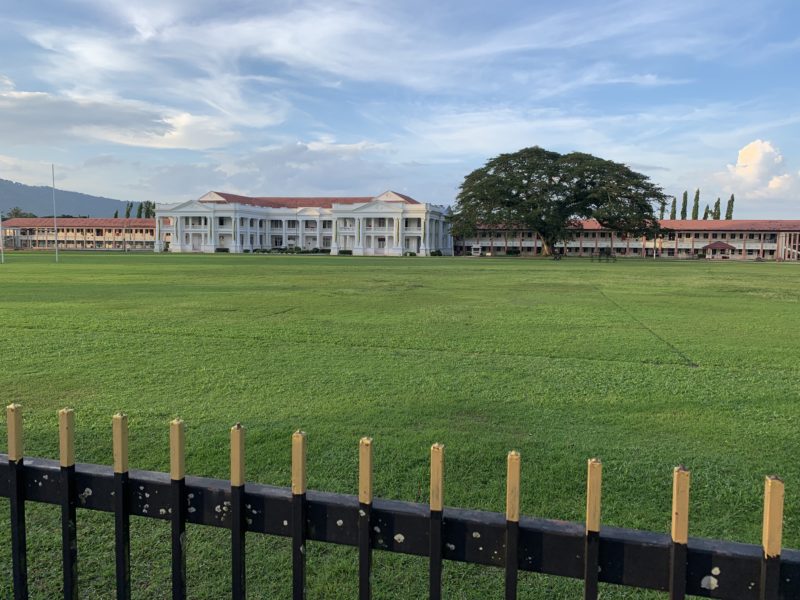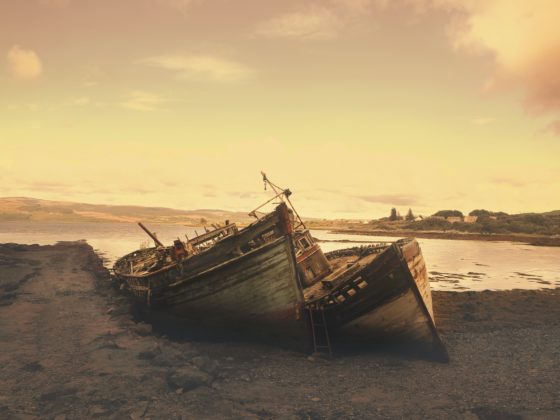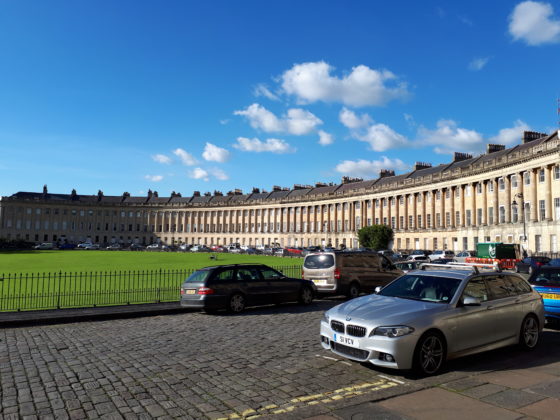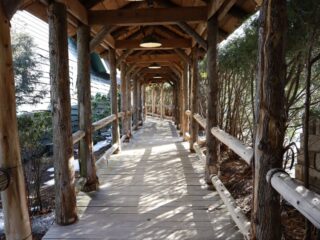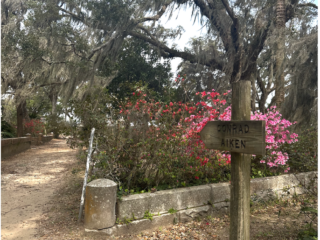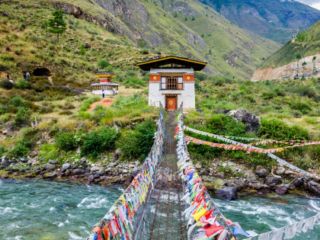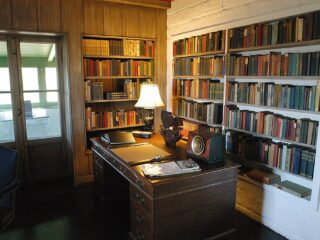By James Weitz
Anthony Burgess is probably best known for his novel Clockwork Orange, also made into a popular film. But few of his fans are aware that he got his start writing while living and working in Malaysia. The story goes that one day in 1953, much to Burgess’s surprise, he received a letter out of the blue from the British Colonial Service accepting his job application for an English teaching position in southeast Asia. Burgess had no recollection of having applied for the position, but took the job anyway, reckoning he must have sent out the application during a bout of heavy drinking.
After arriving in the city of Kuala Kangsar, Burgess began teaching English to children of the wealthy and well-connected at the prestigious Malay College, nicknamed ‘the Eton of the East’. He also took up writing both as a kind of hobby as well as out of a sense of responsibility. In his words, “Here was a place that was going to disappear from the British consciousness before long, namely Malaya, and it had to be written about. I suppose it was kind of a deliberate attempt to encase the atmosphere of the place in fiction. I knew it had been done by Somerset Maugham … but good as he is and as much as he’s recognized as the real fictional authority on Malaya he never knew the people, he never knew the language. I did and I was able to write from the inside.”
The result was The Malayan Trilogy (aka The Long Day Wanes), three novels that center on the misadventures of Victor Crabbe, a British teacher who teaches at Malaysian boarding schools. The stories therein lay bare in comic satirical fashion the various petty infighting and ethnic divisions between the native Malays, Chinese, and Indians; they also highlight the precarious position of the white British nearing the end of colonial rule. Consider the following description of Crabbe’s students in the first novel, Time for a Tiger:
The difficulties of organising a house-system in a school of this kind had been partly solved through weak compromise. At first it had been proposed to call the houses after major prophets – Nabi Adam, Nabi Idris, Nabi Isa, Nabi Mohammed – but everyone except the Muslims protested… The pupils themselves, through their prefects, pressed the advantages of a racial division. The Chinese feared that the Malays would run amok in the dormitories and use knives; the Malays said that they did not like the smell of the Indians; the various Indian races preferred to conduct vendettas only among themselves. Besides, there was the question of food. The Chinese cried out for pork which, to the Muslims, was haram and disgusting; the Hindus would not eat meat at all, despite the persuasions of the British matron; other Indians demanded burning curries and could not stomach the insipid lauk of the Malays.
But soon the students do come together, albeit only out of opposition to the British headmaster who has imposed a strict punishment on one of their peers. To complicate matters, rumors swirl that a looming communist insurgency in the countryside has infiltrated a student group on campus.
In addition to Victor Crabbe’s doings, the book follows the lives of several other characters. Crabbe’s wife, Fenella, longs for a more exciting and cultured atmosphere than what their small Malaysian city has to offer. But Crabbe does not drive, and there is a taboo in Malaysia against female drivers. To transport Fenella to cultural activities outside the city, he buys a used car and hires a Malaysian driver — a married Sikh junior police officer named Alladad Khan who becomes a bit too fond of his wife. Unbeknownst to Crabbe, Khan had teamed up with Nabby Adams, a British police officer, to work a grift to buy then sell the used car to Crabbe. Adams is an alcoholic who ceaselessly schemes for ways to make money and rip off local kedais for a few beers. He longs to return to his previous posting in India, a country for which he has an abiding affection that some of his countrymen find repulsive. His British flatmate dresses him down:
Oh, God, man get wise to yourself. And make up your mind about what bloody race you belong to. One minute it’s all about being a farmer’s boy in Northamptonshire and the next you’re on about the old days in Calcutta and what the British have done to the Mother India and the snake-charmers and the bloody temple-bells. Ah, wake up, for God’s sake. You’re English right enough but you’re forgetting how to speak the bloody language, what with traipsing about with Punjabis and Sikhs and God knows what. You talk Hindustani in your sleep, man. Sort it out, for God’s sake.
These characters and their quirks come together in a car trip through the communist countryside, where the calls of wild tigers perhaps insinuate a greater significance to the book’s title than the well-known Tiger beer. A breakdown forces the entire party to pass the night in the jungle. Burgess’s early talent shows especially in his descriptions of setting, which here foreshadows a latent disorder lurking just below the surface of organized British rule:
The rain, like a football crowd, was waiting to charge and rush at the opening of the gates. The jungle that stood back sullenly and threateningly to let the road go through looked defiled and clotted in the thickening light. Mist rested halfway up the mountains. Soon the rain started in an orchestral roar.
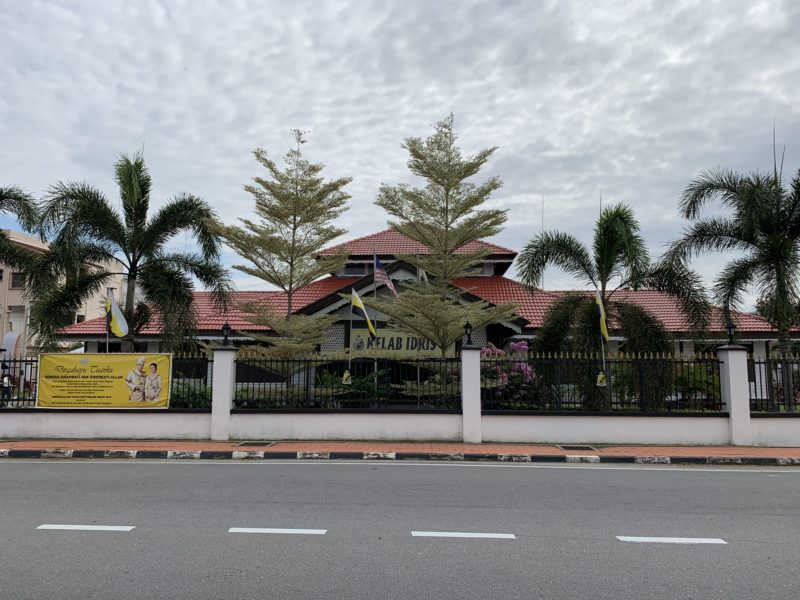
I found the building that had been the British social club where Burgess was a member while he worked in Kuala Kangsar, and where he wrote Time for a Tiger as he drank Tiger beer. The place was still a social club, only now the members were primarily local Malaysian Muslims (the majority local population). I was happy to have found this building that now holds a little history, and thought I should mark the occasion by drinking a Tiger. I sat down and ordered one bottle, but the waiter told me that I could only order alcohol on the patio. So, I went outside, sat down and ordered a Tiger from another waiter. He directed me to the bar, which was back inside the building, where a man told me they would not be selling beer until the weekend. It was then Thursday. “Oh,” I said, “I can come back tomorrow then?” He clarified that there would be no beer until Monday. As I left, some helpful men at the door pointed me down the road and told me I could buy beer at a store a couple hundred meters away.
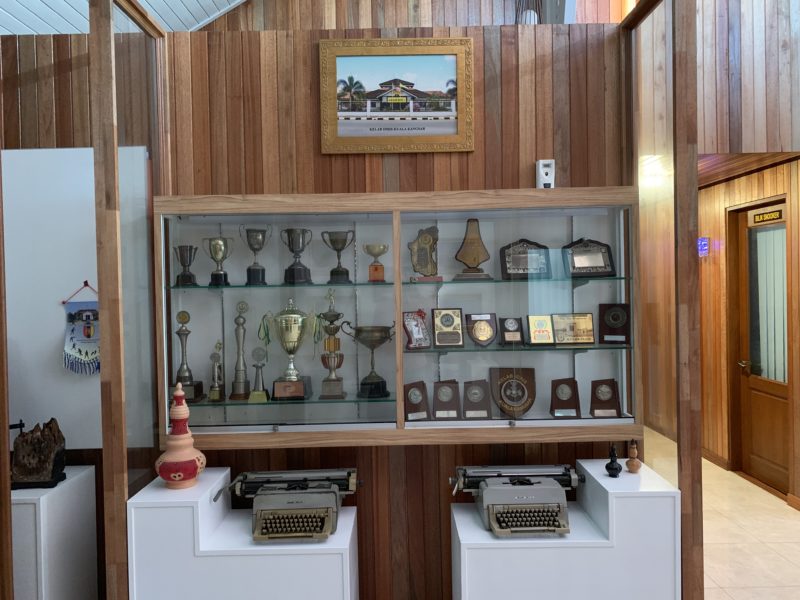
In Time for a Tiger, Western characters sometimes find themselves defenseless against evasive Eastern communications. I felt fortunate to have shared that lived experience, but I still wondered whether I couldn’t find a place that would sell me a Tiger. I began a hike across the city, making inquiries here and there. No one knew. Finally a man of Chinese descent indicated an alley next to a nearby market. I walked down it and turned right. Out of sight of any passersby was a kind of outdoor common area with many plastic chairs and tables where several informal open-air restaurants shared the same space. And there, at last, I was able to purchase a bottle of Burgess’s Tiger beer.
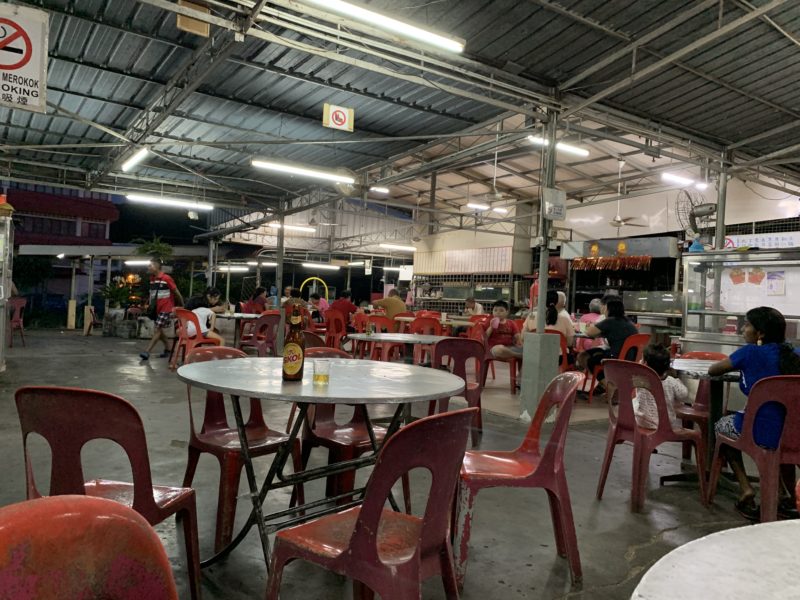
The second book in the trilogy, The Enemy in the Blanket, is set in the fictional city of Dahaga, in reality Kota Baharu, a city of several hundred thousand, where Burgess was posted after falling out with his former boss. Crabbe takes a position as headmaster of a local high school. Though a promotion from his previous position, not everything is going well. A colleague, Jaganathan, is scheming against him. Soon after his arrival, he runs into an old classmate from England, Hardman, who is working as a lawyer in Dahaga, and planning on marrying a local Muslim woman for her money. Hardman later offhandedly mentions to Jaganathan at a party that Crabbe was a communist at university. As a communist insurgency is ongoing, Jaganathan makes the most of it. It doesn’t help that Crabbe’s cook is found to have been feeding Communist soldiers, or that a local rich and influential Malaysian is angling to gain possession of his car and seduce his wife, which leaves Fenella, who has discovered Crabbe’s own marital indiscretions, with a real decision to make.
Kota Baharu is a city with a population of several hundred thousand but no movie theater. It was explained to me that the local government, guided by Koranic principles, is concerned that a cinema might provide an illicit opportunity for men and women to sit too close to each other in a dimly lit space. After checking into a local hotel on the Kelantan River, the young man behind the desk wanted to confirm that I actually was from the United States. With a warm smile, he said, “it is extremely rare for us to have guests from the United States, sir.” I asked when was the last time that an American had stayed there. He was unable to remember, though he said it was not uncommon to have other Western guests.
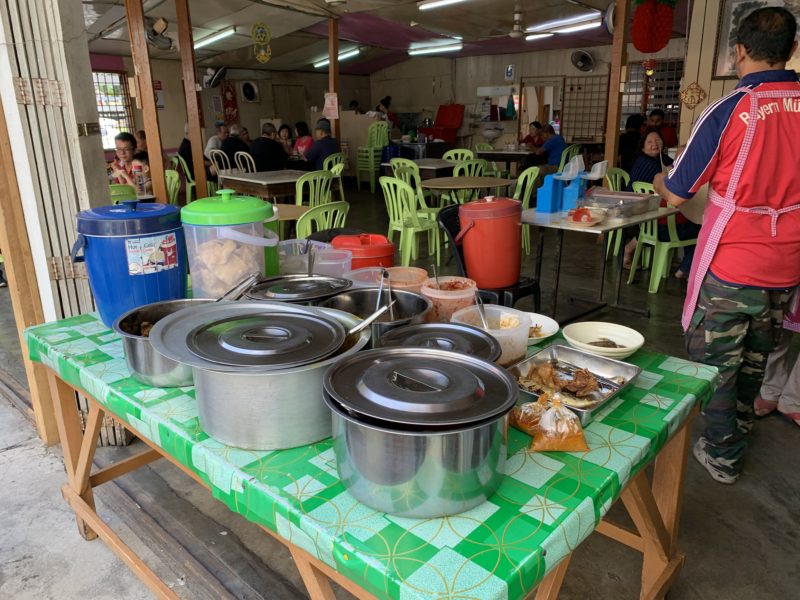
The next morning, on my way to a museum, I passed a place serving a breakfast of blue rice seasoned with lemongrass, dried coconut flakes, curry chicken, deep-fried flower petals, and fresh green vegetables, all scooped into a large piece of paper rolled into a cone. The customer could then take it away or unfurl it on a table where it became a kind of plate for the food.
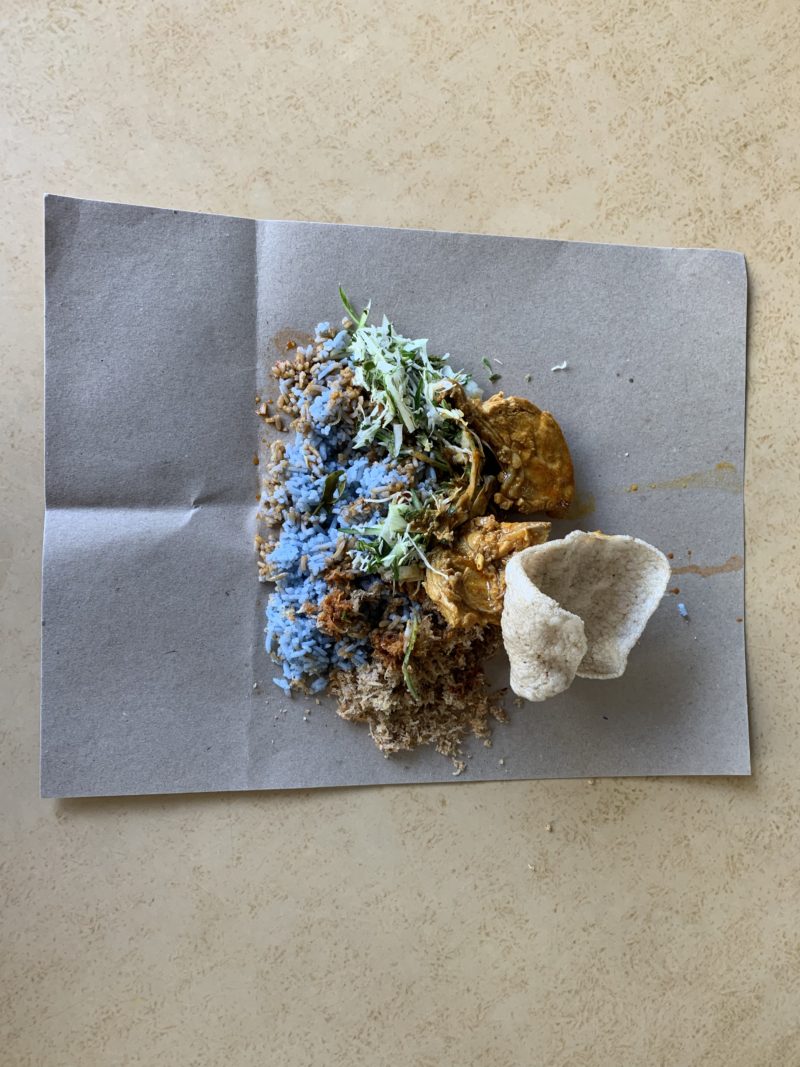
After breakfast, I continued to the museum, which featured exhibits from the colonial era. There I spoke with a staff member about Burgess, his writings and where in the city he might have taught; a local Muslim woman in a hijab hovered nearby with her back to us for a couple of minutes. The staff member did not have many suggestions, but soon the woman turned around, revealing her police-officer uniform, and offered to drive me to the local Department of Education where she thought I might find records showing the building where Burgess had taught. I thanked her and accepted the offer. She was friendly and spoke very good English. As we continued talking inside her car, she asked me where I was from.
“The USA,” I said.
“I can take you to the tourist office,” she said, making no more mention of the government records office.
The final book of the trilogy, Beds in the East, is the weakest. It lacks the plot and character development of the first two. Crabbe has remarried, and is now working as an education officer. He takes an interest in a young man, Robert Loo, whose great talent as a composer of genuine native Malayan music is polluted by the American pop he hears on the jukebox at his father’s café. There is also a flakey British anthropologist who is studying Malaysian culture, an uncultured British beer salesman, and a Chinese lawyer who, somewhat amusingly, has internalized British culture.
Some Malaysians assert that Burgess’s depictions of ethnic tensions in Malaysia’s multicultural society as it neared independence are still very relevant today. Burgess’s desire to “encase the atmosphere of the place in fiction” was consistent with his convictions as a lifelong teacher, which he forcefully expressed in a 1972 TV interview: “We have to study the past. We have to get behind things. And look at them coldly and clearly …. I feel that there is a philosophy which wishes not to understand the past, which wishes to believe that it is possible to throw over our inherited body of knowledge and make some kind of fresh start …. It is this that worries me.”
James Weitz lives in Asia where he writes literary tourism articles for publications such as the Open Journal of Arts and Letters, www.ojalart.com, where he is an associate editor, and the Mekong Review. You can follow James at his website at www.jamesweitz.com.

